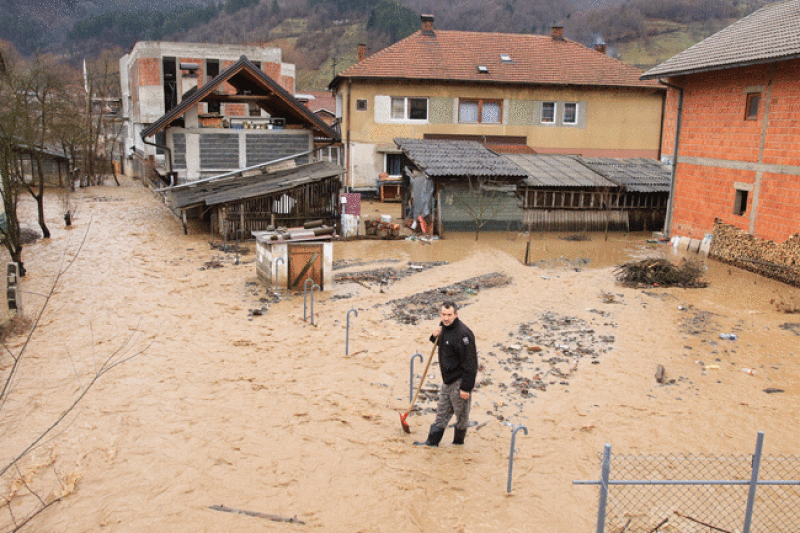The EBRD is well placed to work with market participants and other agencies such as the United Nations Development Programme (UNDP) to roll out the use of catastrophe bonds and other insurance-linked securities in the western Balkans, an industry expert believes.
These tools could help countries such as Albania, Bosnia and Herzegovina, North Macedonia, Montenegro and Serbia manage the impact of natural disasters like flooding and earthquakes.
Particularly in light of climate change, finding a new way to transfer the risk of disasters on to the private sector could boost the financial resilience of governments, ILS proponents believe. ILS involves capital markets investors bearing the financial risk of catastrophes, in exchange for receiving a premium. They pay out in case of a disaster.
The EBRD is well-placed to participate in the plan, according by Kirill Savrasov, CEO of Phoenix CRetro Reinsurance. “That could be a really useful involvement,” he said.

The concept of paying a premium for insurance can be off-putting for governments, and some of the departments charged with dealing with catastrophes may be too preoccupied with immediate disaster relief to consider a solution like ILS. But involving finance ministries could encourage countries to look at disasters as a financial risk to be mitigated.
Stanislav Kim, programme specialist for recovery, early warning systems and response at the UNDP, said that countries became more receptive when they thought about the cost of disasters to the economy and the constraints it posed to development.
Pooling arrangement
In the Balkans, a cross-country approach may make sense, given the similar risks and the costs of structuring a deal. “Ideally a pooling arrangement is great,” said Savrasov. But he noted that political disagreements might make that difficult.
Rom Aviv, co-founder and managing partner at IBI ILS Partners, an asset management firm, said that investors could be receptive. “Provided the transaction is following proper modelling routines, there is going to be significant demand for [natural] cat risks in the Balkans,” he said. “Because such risks are generally unavailable to ILS investors, the addition of it to the portfolio may add solid diversification benefits.”
The obvious structure for ILS in the Balkans, at least at first, would be parametric, where the pay-out is based on measurable attributes of a catastrophe such as wind speed or earthquake strength. This is as opposed to an indemnity structure, where the pay-out is related to actual losses incurred. Transparent mechanisms for assessing loss can be more difficult in the developing world.
But this is a long-term project. Countries need to “find the data”, according to Kim, as there is a lack of modelling at present.

